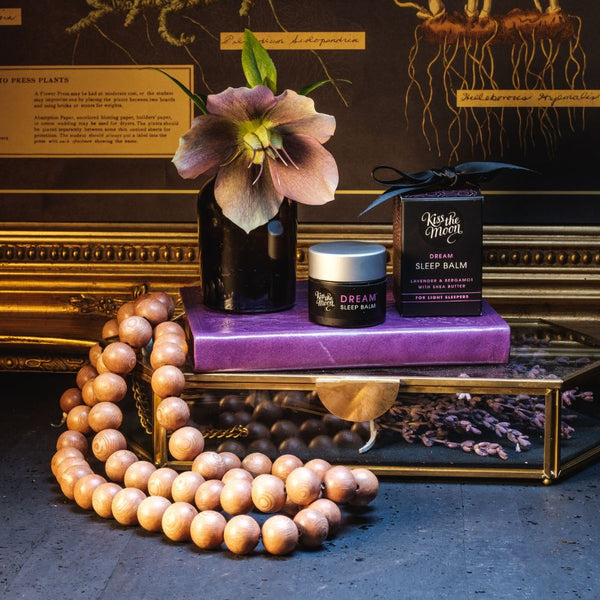TEN STUDY BREAK STRESS BUSTERS

We all remember how stressful exam season can be. If you know someone studying for exams, share these ten tips to help them take breaks and reduce anxiety. These tips can also help improve their brain function, improve stress levels and help with sleep problems
- Take Short Breaks: Incorporate short breaks into your study routine to prevent burnout and maintain focus. Aim for 5-10 minute breaks every hour or so. Use this time to stretch, walk around, or grab a healthy snack to recharge your mind and body
- Practice Deep Breathing: Engage in deep breathing exercises to reduce stress and promote relaxation. Take slow, deep breaths, inhaling through your nose and exhaling through your mouth. Deep breathing can help calm your nervous system and improve concentration. Use calming essential oils to balance your brain and promote a peaceful state.Try our CALM Sleep Balm with Jasmine & Chamomile
- Move Your Body: Physical activity is a powerful stress reliever. Take a quick walk, do some stretches, or engage in a brief workout session to boost your mood and energy levels. Just a few minutes of exercise can reduce tension, boost cognitive function, and strengthen your immune system.
- Listen to Music: Listening to calming or uplifting music can help deal with stress and enhance focus. Create a study playlist with your favourite instrumental tracks or ambient sounds to create a conducive study environment. Experiment with different genres to find what works best as a stress management tool for you
- Practice Mindfulness: Take a few minutes to practice mindfulness meditation or guided relaxation exercises. Focus on the present moment, paying attention to your thoughts, feelings, and sensations without judgment. Mindfulness can help reduce anxiety and improve mental clarity.
- Connect with Nature: Spend time outdoors or bring elements of nature into your study space. Take a short walk in a nearby park, sit in the sunshine, or incorporate indoor plants into your environment. Adding calming scents to your workspace can make it feel more like nature. Make sure to choose a brand that uses real essential oils. This will provide the best therapeutic effects. Try our Aromatherapy Reed Diffusers to bring the scent of the outdoors in
- Engage in Creative Activities: Give yourself a break from studying by doing things you love, like drawing, painting, writing, crafting, or reading a book. Expressing yourself creatively can provide a welcome distraction from academic stress and stimulate your imagination.
- Socialise Virtually: Connect with friends or family members virtually during study breaks. Take a few minutes to chat, laugh, or share updates with loved ones. Socialising can provide emotional support and help you feel more connected, reducing feelings of isolation or loneliness.
- Practice Gratitude: Take a moment to reflect on things you're grateful for during your study breaks. Write down three things you're thankful for or keep a gratitude journal to cultivate a positive mindset. Gratitude can help shift your focus away from stressors and promote a sense of well-being.
- Hydrate and Nourish Yourself: Drink plenty of water and eat nutritious snacks during study breaks to fuel your body and mind. Choose water or herbal tea to drink, and pick healthy diet snacks with protein, fibre, and healthy fats to keep your energy up.
Taking study breaks and engaging in stress-relieving activities can help you handle stress better. It can also increase your productivity and help you maintain a healthy balance in your life.


